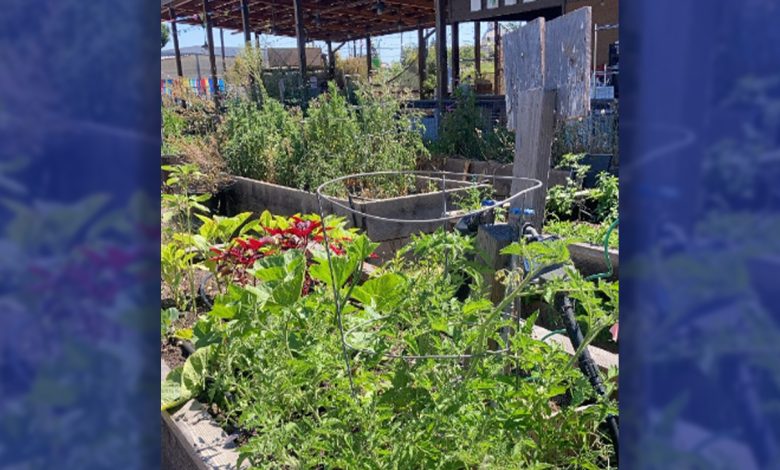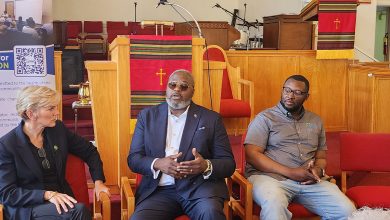Oakland Cuts Funding to Community Programs Organized by Acta Non Verba: Youth Urban Farm Project

By Daisha Williams
Acta Non Verba, a youth urban farm project fighting food insecurity and diet-related health issues in Oakland, recently lost its city funding despite protests by community members and other local organizations such as the Sugar Freedom Project last month.
ANV, which has two farms, one in West Oakland and one in East Oakland, was backed by the 2017 tax on sugar-sweetened beverages of 1 cent per fluid ounce. The intended beneficiaries of this tax were programs like ANV’s that are helping combat the intake of sugary processed foods and diet-related health issues.
ANV farms serve a further purpose in that the produce from their farms is used to create Community Supported Agriculture (CSA) bags which they freely distribute to community members who need them.
During the Oakland City Council meeting on July 18 the city stood firm on its decision despite pushback from the community.
Cutting these funds negatively affects parents, children, and unhoused individuals.
Rachel Parker, the CSA manager and one of the full-time workers at the West Oakland farm said, “The soda tax was a perfect opportunity for the city to do right by its citizens and they failed to deliver.” She and many other people left that meeting feeling both frustrated and infuriated at the city failing to keep its word.
The cut in funding has detrimental effects on the community because there are many neighborhoods in Oakland that are considered food deserts. A food desert is defined as a neighborhood where at least a third of the population lives more than half a mile from the nearest grocery store. African American and low-income households tend to make up these neighborhoods.
In 2021, 900 neighborhoods in the Bay Area had limited access to food. With the prices of produce continuing to increase, even when distance isn’t a problem, for many people fresh produce is simply out of their budget.
One of the workers prefers the term “food apartheid.” A desert is something that occurs naturally but the fact that certain neighborhoods cannot access healthy food is intentional.
A lack of access to healthy foods leads to an increased consumption of processed foods which tend to be higher in sodium, and artificial sugars. These diets can lead to many negative health effects, the most common being diabetes. About 10% of the adult population has diabetes. In 2018, African American people were twice as likely to die from diabetes than white people.
These effects are just a fraction of the things that ANV is trying to remedy with their work. ANV wants to continue supplying the community with fresh, organically grown produce but cannot do so without the proper funding. They are accepting donations and have created a “pay it forward” campaign in order to help them continue to serve the community.
In addition to the farms, ANV has programs catered toward youth, the biggest being Camp ANV, a six-week overnight camp where kids are able to get out of an urban environment, connect with nature, learn how to use food as medicine, develop cooking skills as well as gain skill in archery. They also have an adult camp held each fall to fundraise for their youth camp called Camp for Grown Folx.
ANV turns no child away from the camp due to lack of funds because they believe that this is an experience that every kid should be able to have.
They use the produce from these farms to put together CSA bags that they distribute at no cost to community members who need them.




